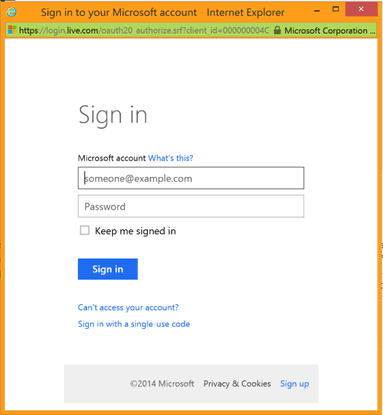I wrote in another publication about authentication but am going to delve into authentication from the view as someone from the hacker underground. Web authentication has evolved immensely from the early days of the web where it was mostly basic authentication and for the more ‘secure’ websites digest authentication was used.
 So you if you are scratching your head wondering what the heck I am going on about well….basic authentication requires that a special file .htpasswd, containing the credentials of the individuals who are authorised to access a resource, be placed in the directory which is to be secured and data is sent over the network in unencrypted manner (sniffing attack anyone?...anyone?) anyway so digest authentication then came in and was intended to supersede unencrypted use of the Basic access authentication, allowing user identity to be established securely without having to send a password in plaintext over the network. As technologies improved we made the leap to form based authentication which is much more familiar now due to ability to save credentials to database and easily handle sessions.
So you if you are scratching your head wondering what the heck I am going on about well….basic authentication requires that a special file .htpasswd, containing the credentials of the individuals who are authorised to access a resource, be placed in the directory which is to be secured and data is sent over the network in unencrypted manner (sniffing attack anyone?...anyone?) anyway so digest authentication then came in and was intended to supersede unencrypted use of the Basic access authentication, allowing user identity to be established securely without having to send a password in plaintext over the network. As technologies improved we made the leap to form based authentication which is much more familiar now due to ability to save credentials to database and easily handle sessions.
Read more: Tales from the Hacker Underground: Web Authentication
 Almost half (43%) of Internet users in South Africa believe traditional over-the-counter banking is safer than banking online, according to a survey carried out by Kaspersky Lab and B2B International. Despite these fears most people still make some payments online but many fail to take even basic security measures, putting their money and banks’ reputations at risk.
Almost half (43%) of Internet users in South Africa believe traditional over-the-counter banking is safer than banking online, according to a survey carried out by Kaspersky Lab and B2B International. Despite these fears most people still make some payments online but many fail to take even basic security measures, putting their money and banks’ reputations at risk.
The survey shows that a significant number of users (64%) feel vulnerable when making financial transactions online. Moreover, just less than half (49%) reported they believe making payments offline is more reliable than online and 43% agreed that offline banking is the safer than online banking.
However, in spite of these fears, the majority of Internet users make online payments: 74% of those surveyed use their desktops or laptops for online payments, 22% locally use their tablets, 32% use their smartphones, and 14% of Smart-TV owners admitted using their Smart-TV for such operations. At the same time, according to the survey, 15% of users do nothing to protect their financial data online.
 Google, Microsoft, Yahoo, and AOL joined forces with an anti-fraud startup to help keep phishing messages out of peoples' inboxes.
Google, Microsoft, Yahoo, and AOL joined forces with an anti-fraud startup to help keep phishing messages out of peoples' inboxes.
The major web-based email providers will be providing metadata from messages that get delivered to their customers to AGARI so it can be used to look for patterns that indicate phishing attacks.
According to Agari CEO Patrick Peterson, "Agari collects data from about 1.5 billion messages a day and analyzes them in a cloud-based infrastructure".
The company aggregates and analyzes the data and provides it to about 50 e-commerce, financial services and social network customers, including Facebook and YouSendIt, who can then push out authentication policies to the e-mail providers when they see an attack is happening.
"Facebook can go into the Agari console and see charts and graphs of all the activity going on in their e-mail channel (on their domains and third-party solutions) and see when an attack is going on in a bar chart of spam hitting Yahoo," for instance, Daniel Raskin, vice president of marketing for Agari.
DroidSecurity: Scans Android devices and apps, as well as Web sites you visit, for malware; blocks test-message spam; and offers tools for remotely locating, displaying messages on and wiping data from lost or stolen devices. A backup and restore service is in development. (Android only. Free basic version and $10 Pro app) F-Secure: A suite of software that includes malware protection, a firewall, technology to keep you safe while browsing the Web, and tools for locating or wiping data off a lost or stolen phone.
F-Secure: A suite of software that includes malware protection, a firewall, technology to keep you safe while browsing the Web, and tools for locating or wiping data off a lost or stolen phone.
(Android, Symbian and Windows Mobile; 40 EUR for one year.)  Kaspersky: Anti-malware, firewall, unwanted call and text-message blocking, anti-theft tools and a “privacy mode” that lets you hide designated contacts, calls and text messages.
Kaspersky: Anti-malware, firewall, unwanted call and text-message blocking, anti-theft tools and a “privacy mode” that lets you hide designated contacts, calls and text messages.
(Android, BlackBerry, Symbian and Windows Mobile; $30 for one year.)
 On 4th/Jan/2011, Dell announced it's signing off a definitive agreement to acquire SecureWorks® Inc., a globally recognized provider of information-security services. SecureWorks’ industry leading Security-as-a-Service solutions include Managed-Security Services, Security and Risk Consulting Services and Threat Intelligence. The acquisition expands Dell’s global IT-as-a-Service offerings and information security expertise.
On 4th/Jan/2011, Dell announced it's signing off a definitive agreement to acquire SecureWorks® Inc., a globally recognized provider of information-security services. SecureWorks’ industry leading Security-as-a-Service solutions include Managed-Security Services, Security and Risk Consulting Services and Threat Intelligence. The acquisition expands Dell’s global IT-as-a-Service offerings and information security expertise.
Organizations of all sizes and across diverse industries – including Global 500 companies, mid-sized businesses, financial services, utilities, healthcare, retail and manufacturing – rely on SecureWorks’ industry-leading security services to reduce risk, improve regulatory compliance and lower costs of managing IT security. The company’s proprietary threat management platform is scalable and integrates easily with client environments. In addition, SecureWorks’ world-class Counter Threat Unit research team helps protect clients across multiple industries from ever-changing global IT threats.
TIPS & TRICKS ICT WORLD
- Codeigniter4: Howto fetch data by ID (button click) from database using JQuery Ajax
- Howto stop vulnerable Open Memcached on a Zimbra Server.
- Proxy Server not running on Zimbra Mail Server.
- Howto remove .php, .html extensions on a web page using .htaccess file
- How to Increase the Max Upload Size Limit
- Howto Create a Distribution List or Mailing List in Zimbra mail server
- Howto configure redirection/forward of specific user emails to another email address in Cpanel
- Restore WhatsApp Backup in Android and iPhone
- Howto backup your WhatsApp messages to your Google Drive.
- RESOLVED in JOOMLA3.9: “Error: Application Instantiation Error: Call to undefined method JApplicationHelper::getHash()”
- Howto configure Microsoft Outlook 2016
- How to embed a tweet in to any website (WordPress, Joomla and Drupal)
